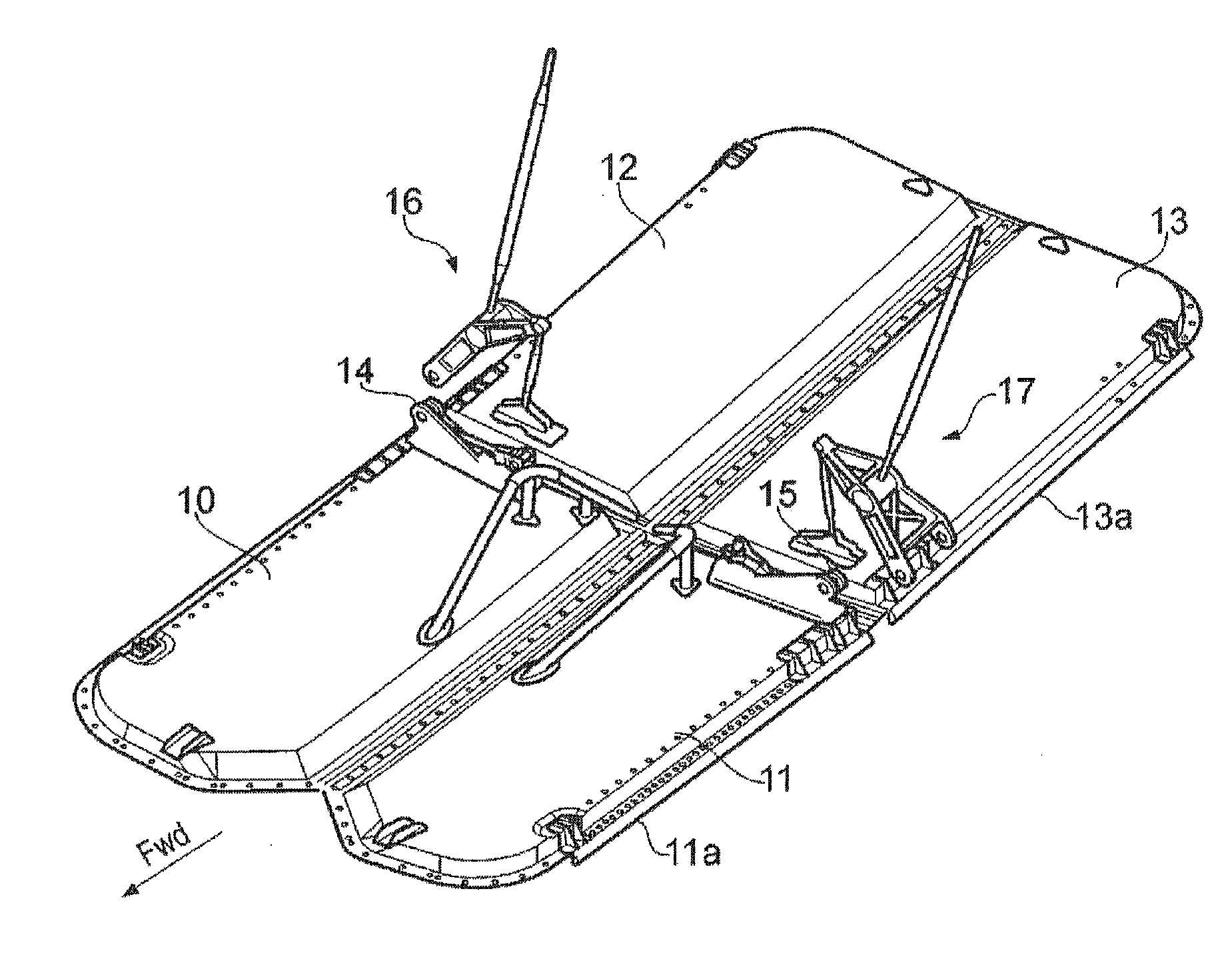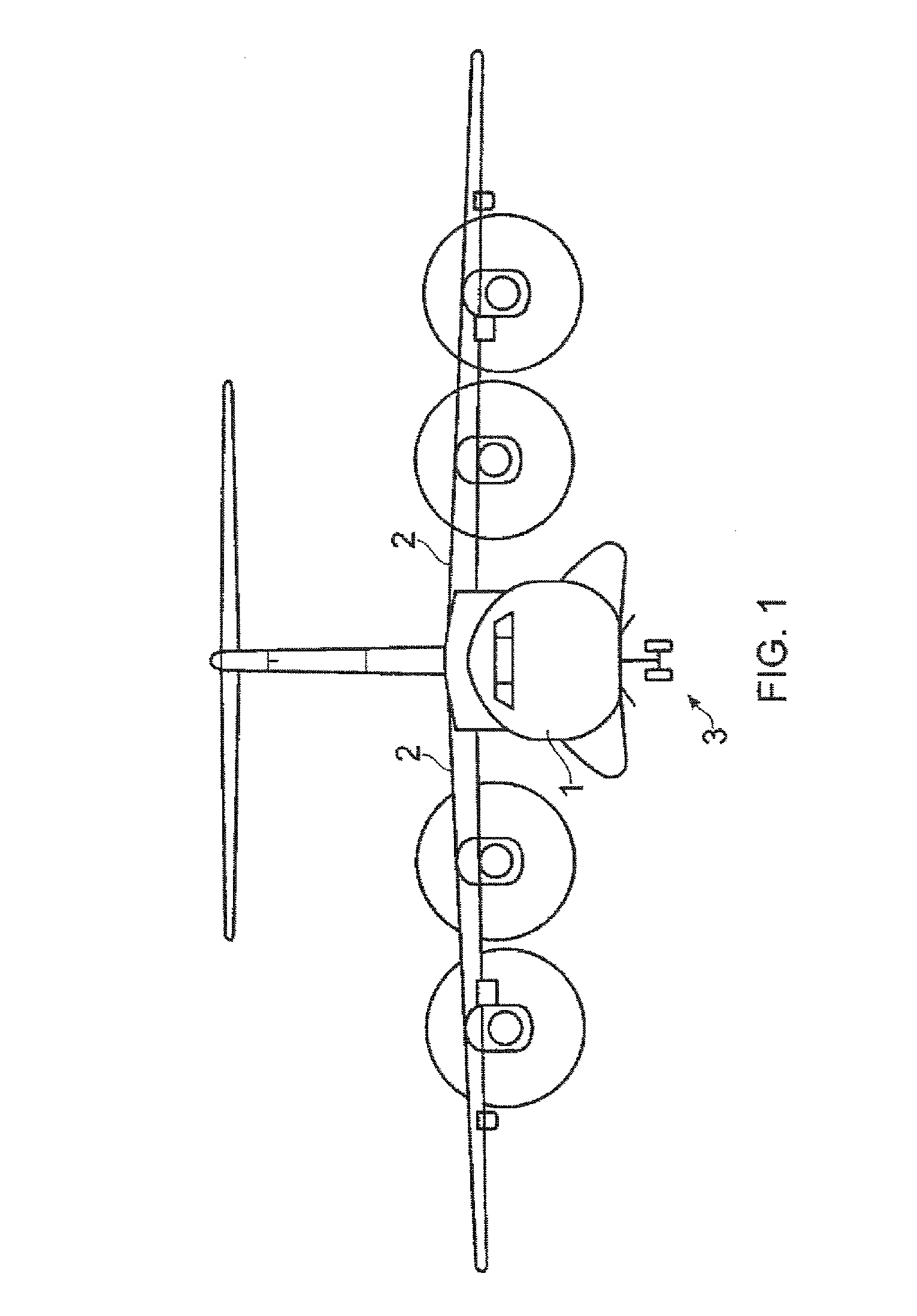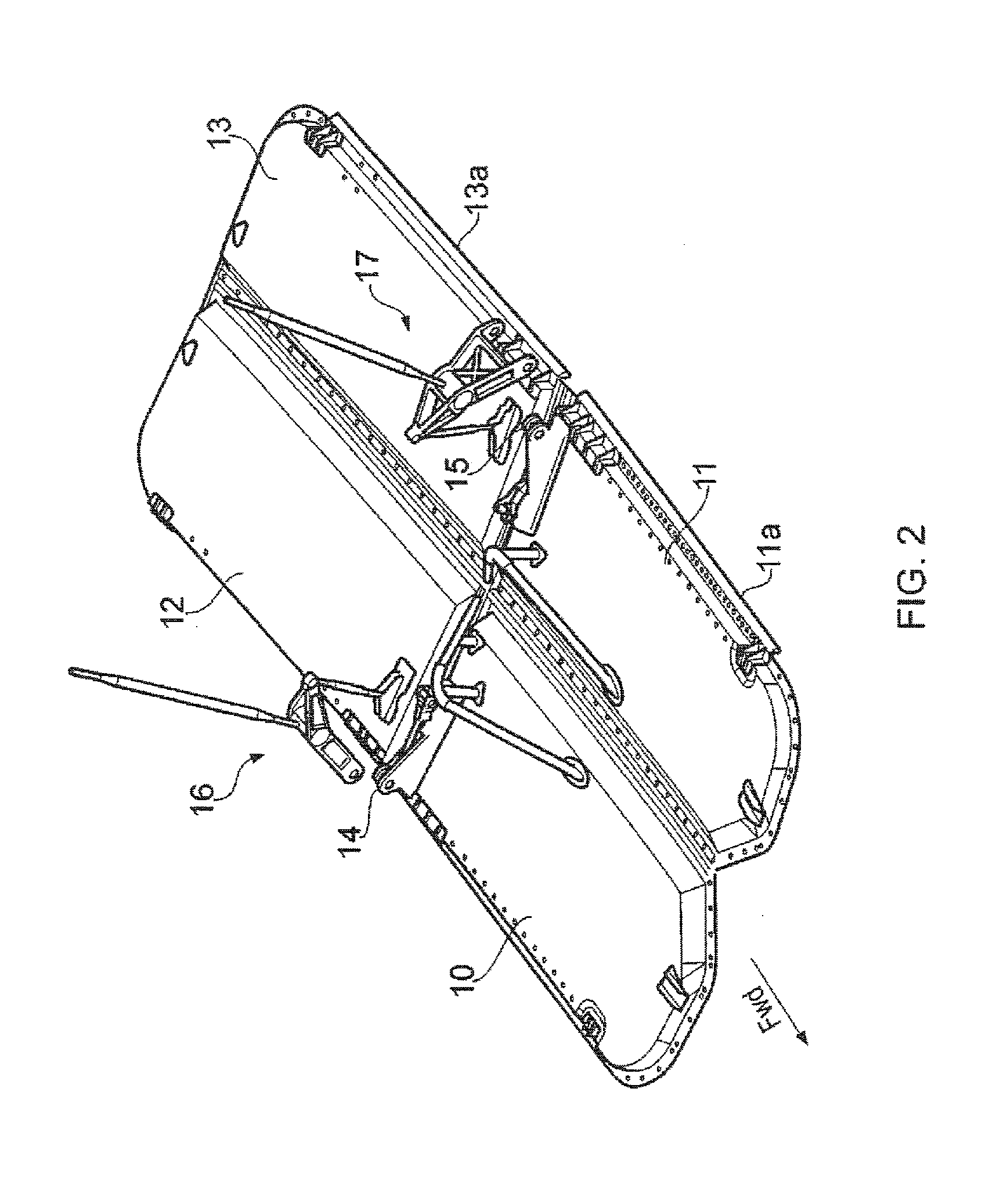Aircraft door installation
a technology for installing airframe doors and exterior doors, which is applied in the direction of construction fastening devices, applications for locking, transportation and packaging, etc., can solve the problem of unfavorable rear door vibration
- Summary
- Abstract
- Description
- Claims
- Application Information
AI Technical Summary
Benefits of technology
Problems solved by technology
Method used
Image
Examples
Embodiment Construction
)
[0041]An aircraft shown in FIG. 1 has an airframe comprising a fuselage 1 and a pair of wings 2. The fuselage 1 has a nose landing gear 3 shown in FIG. 1 in its lowered position.
[0042]During cruise of the aircraft the landing gear is housed in a landing gear bay which is closed by four landing gear bay doors 10-13 shown in FIG. 2, each of which is pivotally attached to the fuselage by a hinge 11a,13a at its outer edge so it can be rotated down from its closed position shown in FIG. 2 to its open position.
[0043]Prior to lowering the landing gear 3 the pair of forward doors 10,11 are opened to about 120° by hydraulic actuators (not shown) attached to fittings 14,15. The landing gear is then lowered, and as it does so the motion of the landing gear causes the rear doors 12,13 to open at the same time via a kinematic linkage mechanism 16,17 attached to each rear door. The forward doors 10,11 are then closed. This sequence is then reversed when the landing gear is raised after takeoff. ...
PUM
 Login to View More
Login to View More Abstract
Description
Claims
Application Information
 Login to View More
Login to View More - R&D
- Intellectual Property
- Life Sciences
- Materials
- Tech Scout
- Unparalleled Data Quality
- Higher Quality Content
- 60% Fewer Hallucinations
Browse by: Latest US Patents, China's latest patents, Technical Efficacy Thesaurus, Application Domain, Technology Topic, Popular Technical Reports.
© 2025 PatSnap. All rights reserved.Legal|Privacy policy|Modern Slavery Act Transparency Statement|Sitemap|About US| Contact US: help@patsnap.com



